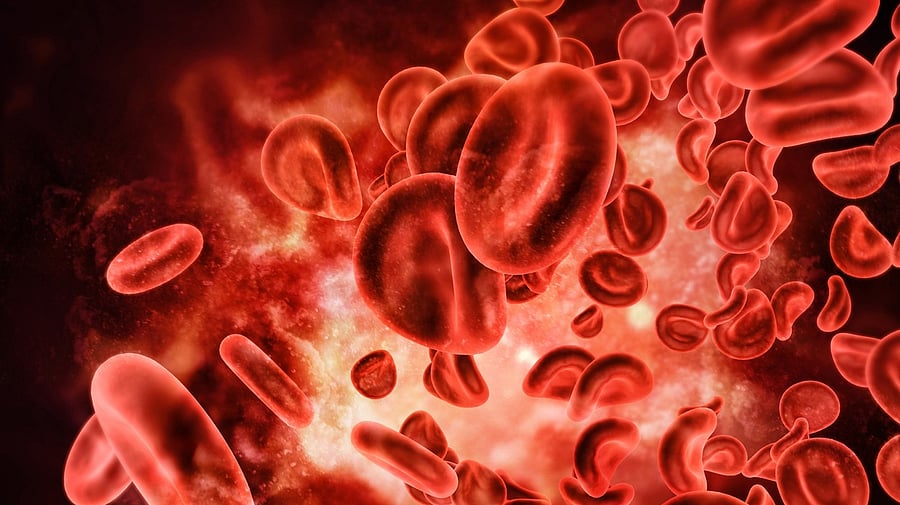
Representative image
Credit: iStock Photo
Bengaluru: Adopting the High-Performance Liquid Chromatography (HPLC) technique first is a more cost- and time-effective method for detecting thalassemia, sickle cell disease, and other inherited blood disorders, collectively known as haemoglobinopathies, a recent study has found.
India faces a significant burden of the sickle cell disease — where red blood cells become sickle-shaped, reducing oxygen-carrying capacity — and thalassemia, which causes the body to produce less haemoglobin than normal.
At least 50,000 babies are born each year with these two disorders.
The research paper, published by Bengaluru-based NGO Sankalp India Foundation in the Frontiers in Haematology journal on Monday, examined the effectiveness of using HPLC as the initial screening method instead of the traditional Complete Blood Count (CBC) test.
Researchers enrolled 6,549 pregnant women, with a median age of 26.7 years, in a multi-centre study conducted across four hospitals in South and Central India.
Blood samples were drawn from the women after counselling and informed consent. These samples were transported to Sankalp Labs in Bengaluru to test for the beta-thalassemia trait and common variants using both tests.
If a woman was found to be a carrier of thalassemia or another haemoglobinopathy, her husband was tested for carrier status.
Conventionally, the CBC test is conducted first, followed by HPLC. However, the study asserts that an HPLC-first approach enables the detection of 14% more carriers early, without additional costs.
This saves time and allows patients to make informed decisions about continuing or terminating a pregnancy.
"A Complete Blood Count (CBC) is not suitable for diagnosing sickle cell disease and other haemoglobinopathies, so we risk missing carriers early. CBC can detect smaller red blood cells, which are typical in blood disorders, but anaemic pregnant women also have smaller red blood cells. This shows CBC is not specific enough for confirming haemoglobinopathies. Why conduct CBC first if many cases will need HPLC for confirmation anyway?" explained Rajat Kumar Agarwal, the lead author from Sankalp India Foundation.
Regular blood transfusions are required to treat haemoglobinopathies, without which survival is difficult.
Bone marrow transplant
A bone marrow transplant is a curative option, but it remains unaffordable and inaccessible for many.
Prevention through early detection of carriers is a better strategy.
However, the lack of a universal screening policy for inherited blood disorders during prenatal testing in India hampers prevention efforts.
The study found that the cost of a CBC test was Rs 100, while an HPLC test cost Rs 200. Conducting HPLC first increased costs by only 0.7% compared to starting with CBC and then following up with HPLC.